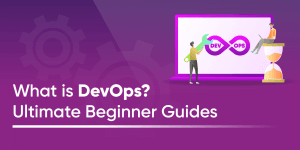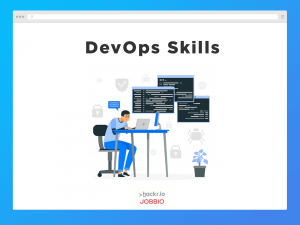Project managers play a crucial role in steering organizations toward success. If you want to impress potential employers with your ability to coordinate resources, manage timelines, and deliver results within budget, you need to prepare for project manager interview questions.
As any project management professional knows, this field demands a distinct combination of technical proficiency, managerial abilities, and effective communication. The stakes are high, as are the rewards, with project managers earning an average salary of $100K+.
The job market for project managers is also thriving. A report by the Project Management Institute projects that there will be a demand for 25 million new project management roles across various industries by 2030, with IT being one of the fastest-growing.
Whether you're gearing up for a project manager interview or looking to polish your skills before earning your next PM certification, you've landed in the right spot.
To shed light on what to expect and how to impress, we've curated a comprehensive list of 65 project manager interview questions and answers, including technical project management interview questions.
So, buckle up and get ready to dive deep into the world of project management interview questions – your next career move might just be around the corner!
And just before we dive in, even if you’re new to project management, this article can help you. But we’d also recommend checking out Google’s Project Management Certification Course to strengthen your fundamentals and get you on the right track.
General Project Manager Interview Questions
1. Can You Tell Me a Little about Yourself?
This is one of the most fundamental interview questions for project managers, and for that matter, any profession!
The interviewer is seeking an overview of your career trajectory and why you're suitable for the role. Discuss your education, work history, key skills, and how these experiences have prepared you for a role in project management. Focus on experiences that demonstrate your abilities as a project manager and your passion for the role. Remember, the goal is to show your alignment with the job requirements.
2. Can You Describe Your Project Management Experience?
This is one of those PM questions that allows you to discuss your history and skills as a project manager. Highlight your experiences managing projects, demonstrating your abilities to lead teams, manage resources, solve problems, and deliver projects successfully. Use specific examples to illustrate your skills.
3. Can You Tell Us About a Project You Managed from Initiation to Completion?
Select a project that highlights your competence in handling all project phases. Begin with a brief overview of the project and your role, followed by the objectives, challenges, strategies used to overcome obstacles, and the final outcome. Wrap up with the impact the project had on the organization, showing how you added value.
4. What Are Some Tools and Software You Commonly Use for Project Management?
The interviewer wants to gauge your familiarity with project management tools. Mention software like MS Project, JIRA, Asana, Trello, or other tools you've used for planning, collaboration, resource management, and tracking progress. This demonstrates your technical competence.
5. What Are the Different Phases of a Project?
This question seeks to evaluate your understanding of the project lifecycle. Detail the five project phases: initiation, planning, execution, monitoring and controlling, and closure. Discuss what each phase entails, showing that you understand the progression of a project.
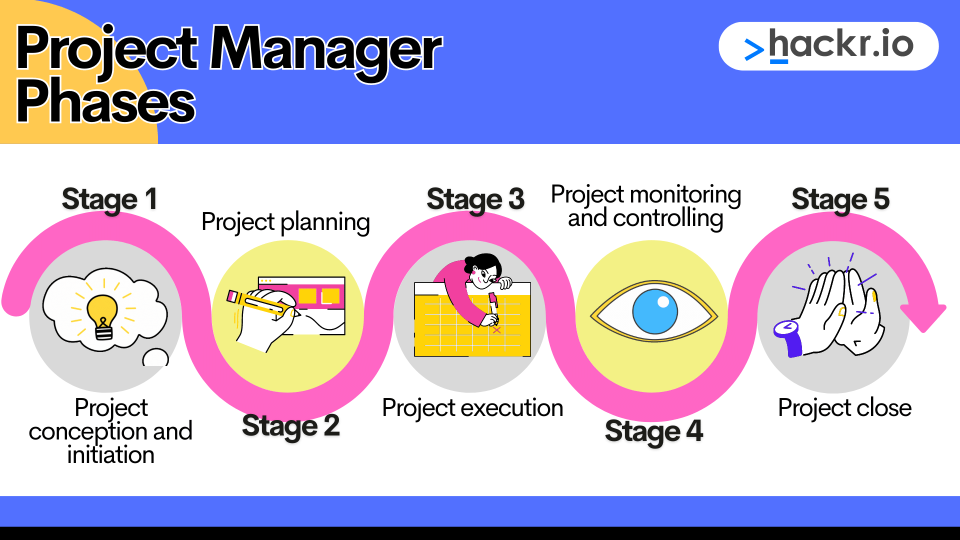
6. What Is a Project Charter?
This question tests your knowledge of project management documentation. Explain that a project charter is a document that formally authorizes a project, outlining its purpose, objectives, scope, key stakeholders, and high-level risks and constraints. It serves as a reference point throughout the project.
7. What Is Stakeholder Analysis?
Interviewers want to see if you understand the importance of stakeholder management. Describe stakeholder analysis as a process of identifying and assessing the interests, expectations, and influence of project stakeholders. This ensures effective communication and stakeholder engagement.
8. Can You Provide an Example of a Project Where You Had to Manage a Difficult Stakeholder? How Did You Handle the Situation?
This question probes your conflict resolution skills. Share a situation where you faced a challenging stakeholder, discussing the strategies you used to manage the situation, such as maintaining open communication, understanding their concerns, and finding mutually beneficial solutions.
9. What Is the Difference between Processes and Projects?
The interviewer is testing your understanding of basic project management concepts. Explain that while a process is a set of continuous, repeatable tasks designed to achieve a specific outcome, a project is a temporary endeavor aimed at producing a unique product, service, or result.
10. What Is a Work Breakdown Structure or WBS?
This question gauges your familiarity with project planning tools. Describe a Work Breakdown Structure (WBS) as a hierarchical decomposition of a project into manageable chunks, detailing tasks and sub-tasks. It helps in planning, scheduling, and monitoring a project.
11. What Is Change Management, and Why Is It Important in a Project?
This PM question assesses your understanding of project adaptability. Explain that change management is a systematic approach to dealing with changes in a project, ensuring that new requirements are properly defined, evaluated, and approved. It's essential in maintaining control and managing project scope.
12. What Is Earned Value Management, and How Is It Used in Projects?
Interviewers want to know your knowledge of project performance analysis. Describe earned value management (EVM) as a technique used to measure project performance and progress in terms of scope, time, and cost. It provides early indications of project overruns and underperformance.
13. How Do You Create a Project Schedule?
The interviewer is testing your planning abilities. Discuss the steps in creating a project schedule: defining activities, sequencing them, estimating activity durations, and developing the schedule. Highlight your proficiency with tools like Gantt charts or project management software.
14. How Do You Create a Project Budget?
This interview question for the PM assesses your financial management skills. Discuss your approach to creating a project budget, which includes estimating costs, determining budget baselines, and controlling costs. Mention your ability to manage resources efficiently and control project costs.
15. What Are the Different Types of Risks That Can Impact a Project?
This question gauges your understanding of project risk management. Discuss different types of project risks, such as technical risks, cost risks, schedule risks, and legal risks. Explain how you identify, analyze, and develop response strategies for these risks.
16. What Is the Triple Constraint Triangle in Project Management, and How Do You Manage It?
The interviewer wants to see if you understand key project management principles. Explain the triple constraint triangle - scope, time, and cost - and how changing one aspect affects the others. Discuss how you manage this by maintaining a balance and managing stakeholders' expectations.
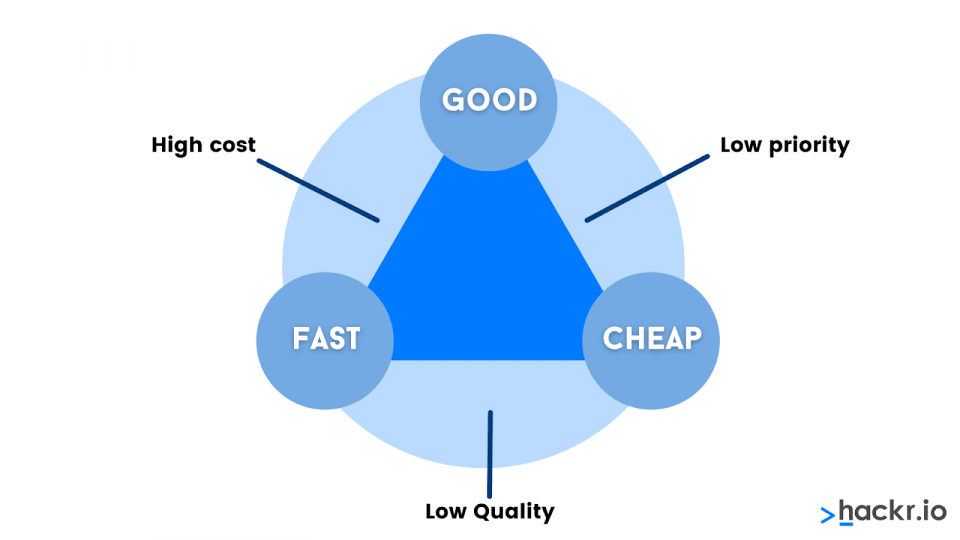
17. What Is the Fast-Tracking Technique and the Crashing Technique? Which Do You Think Is Better and Why?
This question probes your knowledge of project scheduling techniques. Fast-tracking involves performing activities in parallel to save time while crashing adds resources to critical path tasks to accelerate project completion. Neither is inherently better; the choice depends on project specifics like budget and risk tolerance.
18. How Do You Motivate Your Team during a Challenging Project?
This PM interview question assesses your leadership skills. Discuss your strategies to motivate teams, such as recognizing good work, promoting team collaboration, and ensuring clear communication. Explain that your approach depends on the team's needs and the project's circumstances.
19. How Do You Go About Managing the Performance of Your Team?
The interviewer is checking your management skills. Share your approach to performance management, such as setting clear expectations, providing regular feedback, and addressing issues promptly. Emphasize your focus on fostering a positive environment that encourages high performance.
Interview Questions for IT Project Managers
20. Can You Describe Your Experience Managing It Projects, Specifically Those Related to Software Development or Infrastructure?
This is one of those interview questions for IT project managers that assesses your expertise in the field.
Discuss your experience with complex IT projects, emphasizing how you've applied project management principles to oversee diverse technical teams, manage budgeting and scheduling, and interact with stakeholders. Highlight your involvement with software development cycles or infrastructure changes, focusing on how you navigated technical challenges to achieve successful outcomes.
21. What Project Management Methodologies or Frameworks Do You Have Experience With?
This is one of those interview questions for technical project managers that allows you to demonstrate your versatility by discussing your experience with different methodologies like Agile or Waterfall.
Explain how you've used these methodologies in different projects and the results achieved. Emphasize the benefits and drawbacks of each methodology and how your understanding helped adapt them to each project's needs. This shows your flexibility in adapting to different project demands.
22. How Do You Ensure Agile Principles Are Followed, and What Challenges Have You Faced in Implementing Them?
Discuss your strategies for ensuring the team adheres to Agile principles, such as promoting collaboration, maintaining focus on customer value, and embracing change. Share challenges you've encountered and how you overcame them, which reveals your problem-solving skills in an Agile context.
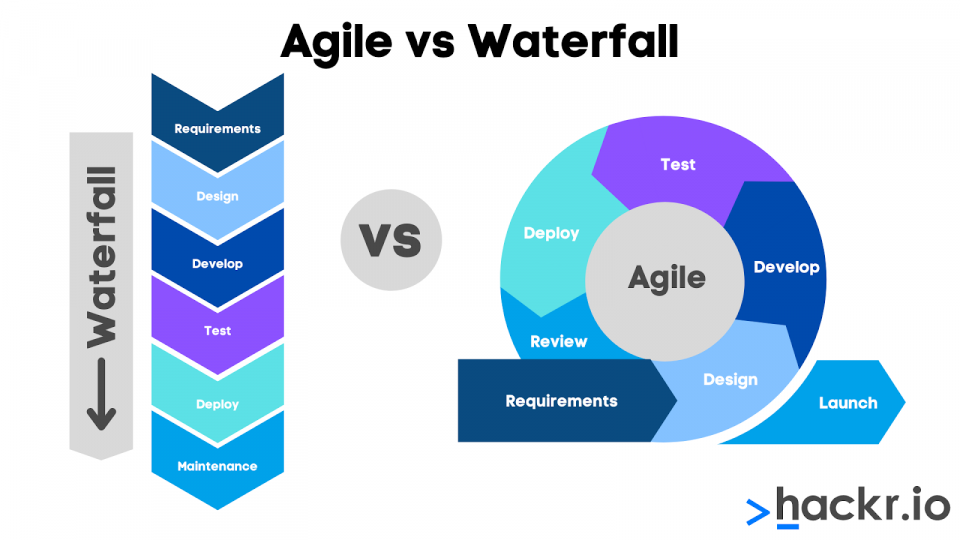
23. How Do You Ensure You Stay Up-To-Date with the Latest Technology Trends Relevant to Your Projects?
Interviewers want to know if you're proactive about industry developments. Mention your strategies for staying current, such as attending industry conferences, subscribing to relevant publications, and participating in professional networks. Show that you understand the importance of continual learning in maintaining project relevance and driving innovation.
24. Can You Discuss Your Experience with DevOps in Project Management?
The interviewer wants to understand your familiarity with DevOps practices and how you integrate them into project management. Discuss your experience in managing projects involving continuous integration, continuous delivery, automation, and other DevOps principles. Explain how these practices impact project timelines, quality, and collaboration between development and operations teams.
25. Can You Discuss Your Experience with Managing Remote or Distributed Teams in a Technical Environment?
This interview question for technical project managers is especially important now that companies are moving toward more remote work environments due to the recent pandemic and the subsequent lockdowns that we all experienced.
Try to share your strategies for maintaining communication and productivity, like using collaboration tools, setting clear expectations, and dealing with time zone differences. Discuss your experience with successfully completing projects with distributed teams, demonstrating your adaptability and management capabilities.
26. Can You Provide an Example of a Technically Challenging Project You Managed and How You Overcame the Challenges?
This question tests your problem-solving skills in a technical context. Highlight a project where you faced significant technical challenges, and describe the problem-solving techniques you employed. This could include your ability to troubleshoot, leverage technical expertise within the team, and navigate issues effectively to ensure project success.
27. How Do You Balance the Need for Innovation with Time and Budget Constraints in a Technical Project?
Interviewers want to know if you can manage competing demands and may ask technical project manager interview questions such as this. Discuss your experience balancing innovation with project constraints. Emphasize your ability to prioritize effectively, manage resources, and leverage innovative solutions within the project's time and budget limitations.
28. How Do You Prioritize Tasks and Allocate Resources in Software Development Projects to Maximize Efficiency and Productivity?
The interviewer is looking for evidence of effective project management. Discuss your strategies for task prioritization and resource allocation, such as using project management software or employing Agile methodologies. Emphasize your focus on strategic goals, stakeholder requirements, and risk management to ensure project success.
29. What Metrics or KPIs Do You Track to Measure the Progress and Success of Software Development Projects?
Your answer should show your analytical skills and understanding of project performance indicators. Discuss key metrics you've tracked, such as delivery timelines, bug counts, or customer satisfaction ratings, and explain how these metrics have informed your project management decisions.
30. How Do You Ensure Quality Assurance and Testing Are Incorporated Effectively into Software Development Projects?
This interview question for IT project managers tests your ability to integrate key project elements. Discuss your strategies for ensuring quality, such as implementing robust testing protocols, incorporating QA reviews at different project stages, and ensuring feedback is incorporated into the development process. Show that you understand the crucial role of QA and testing in project success.
Project Manager Interview Questions on Clear Communication
31. How Do You Manage Conflicting Priorities or Interests in a Project?
Interviewers want to gauge your problem-solving abilities and negotiation skills. Talk about employing strategies such as open communication, conflict resolution, and stakeholder management. Elaborate on how you use project management tools to prioritize tasks based on project goals, and explain your approach to reconciling differing viewpoints.
32. Can You Discuss a Time When You Had to Balance Multiple Projects at Once? How Did You Ensure Each Project Was Successful?
This question seeks to understand your organizational and multitasking abilities. Discuss your experience with project management software for tracking progress and setting deadlines. Highlight your strategy for task prioritization and resource allocation, demonstrating how you maintained a balance and delivered successful outcomes across all projects.
33. How Do You Handle Project Changes or Scope Creep?
Here, interviewers want to understand your adaptability and your approach to change management. Discuss the use of a structured change management process, which includes documenting changes, evaluating their impacts, and obtaining necessary approvals. This shows that you can maintain project integrity while accommodating necessary changes.
34. How Do You Handle Risks and Issues That Arise During a Project?
This question is about your risk management skills and ability to anticipate potential problems. Detail how you've used risk management processes, such as identifying, analyzing, and responding to risks. Share how you've implemented contingency plans and mitigated issues, which shows your proactive approach to maintaining project stability.
35. How Do You Bridge the Gap between Technical and Non-technical Team Members to Ensure Everyone Is Aligned and Informed?
Interviewers are assessing your communication and leadership skills here. Discuss your experience using clear, accessible language, visual aids, or training sessions to convey complex technical concepts to non-technical team members. Highlight your ability to facilitate understanding and collaboration within diverse teams.
36. How Do You Ensure That Your Team Members Clearly Understand Their Responsibilities and the Project Objectives?
The aim here is to understand your leadership and communication skills. Discuss methods like clearly defining roles and responsibilities, setting performance expectations, and regularly reviewing project objectives. Share how you've used team meetings or one-on-one sessions to ensure clarity and alignment.
37. How Do You Manage the Expectations of the Project Sponsor or Stakeholders?
This interview question for managers targets your stakeholder management and communication skills. Discuss how regular, transparent communication, including status updates and reviews, helps manage expectations. Also, mention your experience in balancing stakeholder needs with project constraints and negotiating compromises when needed.
38. Can You Share an Example of a Time When You Had to Give Constructive Feedback to a Team Member? How Did You Deliver the Feedback?
Here, your interpersonal skills and your ability to foster a positive work environment are in focus. Share how you approach feedback as a tool for growth, delivering it in a clear, respectful, and solution-oriented manner. Highlight your experience in maintaining open lines of communication and fostering a supportive environment.
39. Describe Your Approach to Handling Difficult Conversations, Such as Discussing Project Delays or Scope Changes.
This question tests your communication skills and emotional intelligence. Highlight your ability to approach difficult conversations honestly and empathetically. Discuss how you've worked to find mutually beneficial solutions, maintain transparency, and manage any fallout from changes or delays.
40. How Do You Facilitate Effective Meetings and Ensure That Everyone’s Voice Is Heard?
The interviewer is assessing your leadership and facilitation skills. Talk about the methods you've used to structure meetings, such as having clear agendas, timekeeping, and setting ground rules. Discuss how you foster an inclusive environment that encourages input from all participants.
41. Which Communication Style Do You Prefer to Use in Your Projects?
This question seeks to understand your communication strategies. Discuss how you adapt your communication style based on the team, project, or stakeholder needs, whether it's formal, informal, written, verbal, or visual. Share how your flexible communication style contributes to project success.
Project Manager Interview Questions on Consistency and Integrity
42. How Do You Handle Project Budgeting and Ensure That Costs Stay Within Budget?
The interviewer is gauging your financial management skills. Discuss your approach to project budgeting, such as estimating costs, setting a baseline budget, and regularly tracking and controlling costs. Mention strategies you use to keep costs within budget, like risk management and efficient resource allocation.
43. How Do You Prioritize Tasks and Projects?
This question is probing your ability to manage resources and timelines effectively. Discuss your strategies for prioritization, such as assessing urgency and importance, considering deadlines and resource availability, and aligning tasks with project goals. Mention any prioritization frameworks or tools you use.
44. How Have You Handled a Project That Was Not Going Well? What Steps Did You Take To Rectify the Situation?
The interviewer wants to know how you handle difficulties. Highlight an instance where a project faced challenges, and detail your problem-solving process. Discuss your approach to identifying the issues, developing corrective measures, and implementing changes to bring the project back on track.
45. Can You Give an Example of a Major Decision You Had to Make on a Project? How Did You Approach It and What Was the Outcome?
This question aims to understand your decision-making skills. Describe a significant decision you've made, discussing your decision-making process, such as gathering information, analyzing options, and consulting stakeholders. Highlight the outcome and the impact on the project, demonstrating your ability to make effective decisions.
46. How Do You Control Changes to Your Project?
This interview question for project managers tests your understanding of change management. Explain your approach to managing project changes, such as using a formal change control process, assessing the impact of proposed changes, and getting approval from stakeholders. This demonstrates your ability to maintain control over project scope.
47. How Do You Maintain Consistency in Your Project Management Approach across Different Projects or Teams?
The interviewer wants to see how you maintain standards and processes across different contexts. Discuss your approach to standardizing project management processes and adapting them to different projects or teams, such as using common tools, templates, and methodologies.
48. How Do You Ensure That Your Team Follows Established Processes and Adheres to Best Practices?
This question probes your leadership and quality management skills. Discuss your strategies to ensure adherence to processes, like training team members, implementing process checks, and promoting a culture of quality. Show that you can lead teams to consistently deliver high-quality work.
49. How Do You Demonstrate Personal Accountability and Promote a Culture of Responsibility within Your Team?
The interviewer is assessing your ability to foster a positive work culture. Discuss how you model accountability, such as taking responsibility for your actions, meeting commitments, and addressing issues promptly. Explain how you encourage a similar sense of responsibility in your team, promoting a culture of accountability.
50. How Do You Ensure That Your Project Documentation Is Accurate, Complete, and Up-To-Date?
This question tests your understanding of documentation management. Describe your strategies to maintain accurate project documentation, like regular reviews, using document management tools, and assigning documentation responsibilities within your team. This shows your commitment to transparency and organization.
51. Describe a Situation Where You Had to Uphold the Integrity of the Project Timeline or Budget, Even in the Face of Pressure to Compromise.
The interviewer wants to assess your ability to make difficult decisions. Share a situation where you faced pressure to compromise the project timeline or budget, explaining how you upheld the project integrity, navigated stakeholder expectations, and found a solution that maintained project objectives.
52. How Do You Maintain Consistency in Decision-Making, Even When Faced with Evolving Project Requirements or New Information?
This question gauges your adaptability and decision-making skills. Discuss your approach to decision-making amidst change, such as gathering new information, assessing impacts on the project, and adjusting your decisions accordingly. Show that you can make consistent, informed decisions even when project circumstances change.
53. What Is the Difference between Corrective and Preventive Actions?
The interviewer is testing your understanding of project quality management. Explain that corrective actions address existing issues while preventive actions are taken to avoid potential issues. Both are important in maintaining project quality and ensuring successful outcomes.
Project Manager Interview Questions on Customer Orientation
54. How Do You Ensure Customer Needs and Expectations Are Accurately Captured and Addressed in Your Projects?
This question seeks to understand your client engagement skills. Discuss how you initiate a project by meeting with customers to understand their needs and goals, ensure these are accurately captured in project requirements, and reflect in the project objectives. This approach ensures projects align with customer expectations.
55. How Do You Gather and Incorporate Customer Feedback throughout the Project Lifecycle?
The interviewer wants to assess your approach to feedback management. Describe how you use various techniques, such as regular meetings, surveys, or product testing sessions, to gather customer feedback during the project. Discuss how you analyze this feedback and incorporate it into the project to improve outcomes.
56. How Do You Balance Customer Demands with the Constraints of Your Project, Such as Time, Budget, and Resources?
This question probes your ability to manage project constraints. Discuss your approach to balancing customer demands with project constraints, including transparent communication about what's possible within the project's scope, timeline, and budget and seeking compromises or alternative solutions when needed.
57. How Do You Involve Customers or End-Users in the Project Decision-Making Process, and How Do You Ensure Their Voices Are Heard?
The interviewer is exploring your stakeholder management skills. Detail how you involve customers in decision-making, for example, through regular consultation, including them in key meetings, or setting up a feedback loop. This ensures that their insights and needs are considered in project decisions.
58. How Do You Handle Situations Where Customer Requirements or Expectations Change During a Project?
This question gauges your change management skills. Explain how you handle changes to customer requirements by assessing the impact on the project, discussing the implications with the customer, and adjusting the project plan accordingly. This shows your ability to manage changes effectively while maintaining project outcomes.
59. How Do You Maintain Open and Transparent Communication with Customers throughout the Project Lifecycle?
The interviewer is assessing your communication skills. Describe your communication strategies, such as regular project updates, transparency about project progress and issues, and openness to customer queries and feedback. This approach ensures customers are informed and engaged throughout the project.
60. What Are Some Best Practices You’ve Used to Develop Excellent Customer Relationships?
This question seeks to understand your customer relationship management skills. Discuss best practices such as understanding customer needs, regular communication, delivering on promises, and resolving issues promptly. This demonstrates your commitment to building strong, positive relationships with customers.
Scenario-Based Interview Questions for Project Managers
61. Delayed Project Scenario.
Problem:
You’ve just been assigned to a critical software development project that is already running behind schedule. the stakeholders are concerned, and the team is demotivated. How would you assess the situation, bring the project back on track, and regain stakeholder confidence?
This scenario helps interviewers assess your problem-solving skills and ability to manage a project under pressure. When answering, it's important to show your systematic approach to problem-solving and your ability to be a calming influence during crisis situations.
Solution:
Start by describing your process of project assessment, emphasizing your thoroughness in understanding what's causing the delays. Discuss your strategy for formulating a revised project plan, detailing how you would reallocate resources or employ schedule compression techniques like fast-tracking or crashing if necessary.
When discussing stakeholder management, underline the importance of transparency and consistent communication, detailing how you would keep them abreast of the steps being taken to rectify issues.
Finally, ensure you touch on your team management strategy. Talk about creating an open dialogue, showing empathy, and offering assistance where needed. Demonstrate your understanding that strong leadership is crucial during challenging times.
62. Difficult Team Member Situation.
Problem:
You have a team member who constantly misses deadlines and delivers subpar work. This individual’s performance is affecting the project’s progress, and other team members are growing increasingly frustrated. How would you address this issue and ensure the project’s success?
Solution:
This question gives the interviewer insight into your people management skills and your ability to handle conflict. Effective answers will demonstrate a blend of empathy, professionalism, and firmness.
Discuss the importance of addressing the issue promptly to prevent further disruption to the team. Talk about setting up a private meeting with the team member, being careful to handle the conversation with sensitivity and respect.
When detailing the conversation, show your ability to provide clear, specific, and constructive feedback. Discuss working with the individual to understand their perspective and find solutions if there are underlying issues impacting their performance.
It's important to assure the rest of the team that performance issues are being addressed. Speak about fostering an environment of patience and support, while also discussing strategies if the team member's performance doesn't improve.
63. Scope Change Scenario.
Problem:
Midway through a project, a key stakeholder requests a significant change in scope that would require additional resources and extend the project timeline. How would you evaluate the potential impact of this change, communicate it to the team, and manage stakeholder expectations?
Solution:
This question evaluates your change management skills and your ability to balance stakeholder expectations with project realities. The answer should emphasize your systematic approach to scope changes and your ability to manage communication effectively.
Discuss your method of assessing the impact of the requested change on the project's scope, timeline, and resources. Outline the importance of a structured change management process, including the use of a change request form and an impact analysis.
Communication is crucial when managing scope changes. Discuss how you would communicate the change and its implications to the team and stakeholders, setting realistic expectations and maintaining alignment and commitment to the project.
64. Budget Overrun Scenario.
Problem:
You’re leading an IT infrastructure project, and you realize that the project is on track to exceed its budget due to unforeseen technical challenges. How would you address these challenges, control costs, and ensure the project’s success without compromising quality?
Solution:
This question tests your financial management skills and your ability to navigate unexpected challenges. Your answer should reflect your problem-solving abilities, your strategic approach to cost management, and your communication skills.
Discuss the steps you would take to understand the cause of the budget overrun and to develop potential solutions. Talk about exploring options to reduce costs, like renegotiating contracts, optimizing resources, or adjusting the project scope.
Highlight the importance of transparency with stakeholders when dealing with budget issues. Discuss how you would communicate the situation, the potential solutions, and their impact on the project. Finally, mention the importance of closely monitoring project costs and continually reassessing risks.
65. Cross-Functional Collaboration Scenario.
Problem:
You’re managing a project that requires collaboration between multiple teams with competing priorities and deadlines. Some team leads are reluctant to cooperate, and progress has stalled. How would you facilitate communication, align goals, and foster a collaborative environment to ensure the project’s success?
Solution:
This project manager question is aimed at understanding your team management and facilitation skills, particularly in situations involving competing priorities. The response should highlight your strategies for fostering collaboration and aligning goals across teams.
Start by discussing how you would establish a common goal and align competing priorities. Detail the tools you would use to facilitate communication and ensure everyone remains updated on project progress and decisions.
Describe how you would handle reluctance to cooperate from team leads, perhaps through one-on-one conversations or by creating a team charter to establish expectations for collaboration. Finally, mention the importance of mutual respect and recognition amongst teams to foster a cooperative work environment.
Project Manager Interview Bonus Tips
Now that you're equipped with a comprehensive list of PM interview questions and answers let's explore some practical tips to help you ace that interview:
- Use the STAR method: When answering behavioral or situational project manager questions, use the STAR (Situation, Task, Action, Result) method to structure your response to ensure your answers are clear, concise, and showcase your abilities.
- Do your homework: Before the interview, research the company, its values, and the specific projects they work on. Demonstrating a good understanding of the organization and how your skills align with their needs will make a strong impression.
- Showcase your technical expertise: As a project manager, your technical knowledge is essential. Be prepared to discuss the tools, methodologies, and technologies you have experience with and explain how they contributed to your success in past projects.
- Highlight your soft skills: Alongside your technical prowess, emphasize your leadership, communication, and teamwork abilities. Share examples of how you effectively manage conflicts, motivate team members, or communicate with stakeholders.
- Ask insightful questions: Prepare thoughtful questions to ask the interviewer about the company, team, and projects you might be working on. This shows your interest in the role and helps you assess if the position is the right fit for you.
Final Thoughts
Acing your project manager interview comes down to one thing: preparation. This article, packed with a spectrum of project manager interview questions and answers, offers a robust platform to prepare for your project manager interview and sharpen your responses.
Project management is an ever-evolving landscape, and employers seek professionals who can deftly navigate change, untangle complex problems, and lead teams to victory. Marrying domain knowledge with effective interview strategies empowers you to create a lasting impact on potential employers.
As you step forward on this exhilarating career path, use this article as a trusted guide, equipping you to confidently traverse the interview terrain.
Here's wishing you the best of luck - your next project management endeavor could be just an impressive interview away! Don’t already have an interview? Check out the latest project manager jobs online.
Want to expand your project management horizons? Check out our guide to
The Difference Between Agile and Scrum
People are also reading:

![7 Best AI Coding Assistants In 2023 [Free + Paid]](jpg/16952882603blllo1oza.jpg)
![30 Cool, Easy & Fun Python Projects + Source Code [2023]](png/1655865129yuz5v1mdab.png)

![The 14 Best TensorFlow Courses in 2023 [Free + Paid]](png/1624550510xonrryd0t0.png)
![10 Best Design Books for Design Students [Updated]](png/1642872008wcnbdsvf6q.png)
![I Ranked the Top 5 Best AI Image Generators [with Image Examples]](jpg/1682848644stltm9ynp6.jpg)

